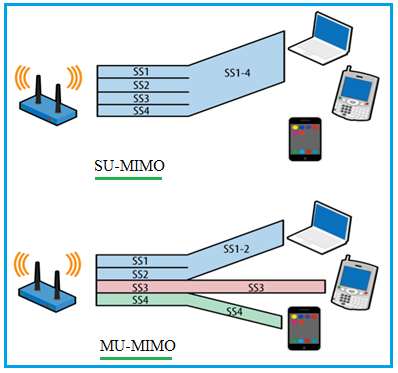Single-User vs. Multi-User Beamforming
Advertisement
The core difference between single user and multi user beamforming lies in the number of intended recipients of the signal. Let’s break it down:
Single User Beamforming
- Communication: Involves a single transmitter communicating with a single receiver.
- Beam Shape: Employs a shaped beam specifically tailored to optimize the signal for that one particular receiver. Think of it as shining a focused spotlight directly onto a single person.

Multiuser Beamforming
- Communication: A single transmitter communicates with multiple receivers (users) simultaneously.
- Beam Shape: Utilizes multiple, individually directed beams, each targeting a specific receiver. Imagine a lighthouse with multiple beams, each pointed towards a different ship. This allows the transmitter to send distinct data streams to different users concurrently.
Summary
Single user beamforming is a one to one communication method using a single shaped beam, whereas multi-user beamforming is a one to many communication method using multiple directed beams.
Advertisement
 RF
RF




